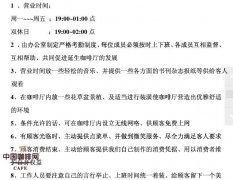It is still not optimistic for Chinese coffee to break out of the "price winter" industry.
While soaring prices have spurred confidence, Chinese coffee production fell to less than 60,000 tonnes in the 2013 - 14 season from 80,000 tonnes in the previous season. In the absence of large-scale coffee leading enterprises and local brands, the pressure to reduce production has made China's coffee industry more eager to "break through" from the origin of raw materials.
Statistics show that Yunnan coffee planting area has grown from more than 300,000 mu in 2008 to more than 1.4 million mu at present, and the output has increased from about 30,000 tons to more than 80,000 tons in 2013, accounting for more than 99% of China's coffee planting area and output.
Coffee industry insiders introduced, looking at the recent 20 years Yunnan coffee price trend, almost every 10 years a price cycle. In 2010, Yunnan coffee prices reached 41 yuan per kilogram, a record high. From 2012 to the beginning of 2014, affected by the decline in international coffee futures prices, the price was once as low as about 13 yuan per kilogram, and the coffee planting industry entered the "price winter" for two consecutive years.
At the end of January 2014, with the recovery of international coffee futures prices, Yunnan coffee prices also rose rapidly. "International coffee prices rose the most in a month in 20 years this past February, from 114 cents a pound on January 28 to 180 cents a pound on February 28." Yunnan Province coffee industry association secretary-general Li Gongqin said.
Li Gongqin believes that there are three reasons for the rapid rise in coffee prices: one is the drought in Brazil, the world's largest coffee producer, since the end of last year, which is expected to affect coffee production; second, some coffee producing countries in Central and South America are affected by coffee rust, and coffee production is expected to decrease; third, coffee futures have been depressed for a long time, coffee futures speculators intend to raise coffee prices, active coffee futures market, etc.
At the same time, international coffee demand is still growing, while China's domestic market is in strong demand. Huang Jiaxiong, a researcher at the Tropical and Subtropical Economic Crops Research Institute of Yunnan Province Academy of Agricultural Sciences, said: "At present, domestic coffee bean demand is increasing by 25 percent every year, and coffee bean imports exceed exports."
"Demand exceeds supply, making coffee prices rise inevitable." Li Gongqin said.
"This year's coffee harvest is nearing its end, but the province's coffee production is still less than 60,000 tons. Pu 'er coffee production is also down at least 30 percent from last year." Despite the surge in purchase prices, the sharp drop in coffee production casts a shadow over China's coffee growing industry, Li said.
In recent years, Nestle and Starbucks have increased their efforts to open up raw material production areas in Yunnan, and Yunnan Arabica coffee has also been sold to more than 20 countries and regions such as Europe, the United States, Japan, and South Korea, but overall Yunnan coffee industry is still in its infancy, and the industry "breakthrough" is not optimistic.
Important Notice :
前街咖啡 FrontStreet Coffee has moved to new addredd:
FrontStreet Coffee Address: 315,Donghua East Road,GuangZhou
Tel:020 38364473
- Prev

If you want to be a boss, open a coffee shop and learn two tricks-coffee shop operation plan
- Next

Cafes in Korea expand rapidly
In November last year, a coffee shop called Coffee with you began to seize all the major business districts in Wuhan, and in less than two months, the number of chain stores increased to eight. Unlike Starbucks and COSTA's direct chain expansion to seize the Chinese market, the South Korean coffee chain operates mainly by joining.
Related
- What brand of black coffee is the most authentic and delicious? what are the characteristics of the flavor of the authentic Rose Summer Black Coffee?
- Introduction to the principle and characteristics of the correct use of mocha pot A detailed course of mocha pot brewing coffee is described in five steps.
- Which is better, decaf or regular coffee? how is decaf made?
- How much is a bag of four cat coffee?
- How about four Cat Coffee or Nestle Coffee? why is it a cheap scam?
- Which is better, Yunnan four Cats Coffee or Nestle Coffee? How about cat coffee? is it a fake scam? why is it so cheap?
- How about Cat Coffee? what grade is a hoax? which instant coffee tastes better, four Cat Coffee, Nestle Coffee or G7 coffee?
- Process flow chart of coffee making-Starbucks coffee making process what coffee tastes good at Starbucks
- The top ten best coffee beans in the world Rose summer coffee or Tanzanian coffee tastes good
- Yunnan four cat coffee is good to drink?_four cat coffee is a big brand? four cat blue mountain coffee is fake?

